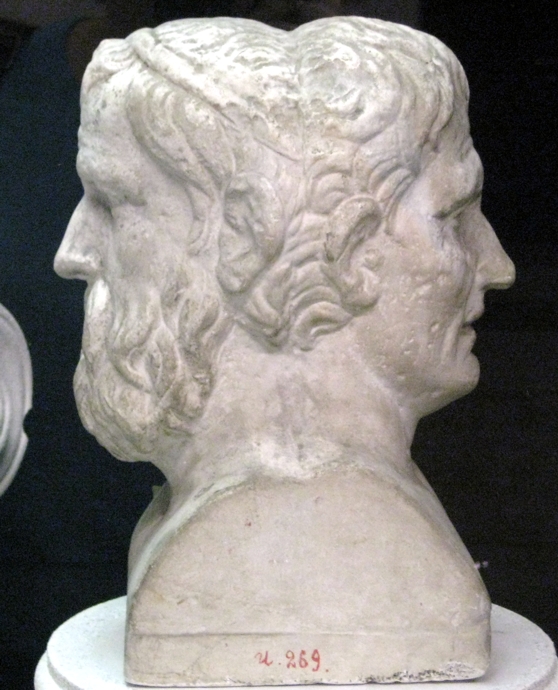Aristophanes
Enlarge text Shrink text- The Author's Аристофан и его время, 1957.
- LCN: Aristophanes
- Spatz, L. Aristophanes, 1978:p. 13 (b. 450 B.C.?; d. 385 B.C.?)
- Encyclopedia Brittanica Online
- Record enhanced with data from Bibliography of the Hebrew Book database
Aristophanes (; Ancient Greek: Ἀριστοφάνης [aristopʰánɛːs]; c. 446 – c. 386 BC) was an Ancient Greek comic playwright from Athens. He wrote in total forty plays, of which eleven survive virtually complete today. The majority of his surviving plays belong to the genre of comic drama known as Old Comedy and are considered its most valuable examples. Aristophanes' plays were performed at the religious festivals of Athens, mostly the City Dionysia and the Lenaia, and several of them won the first prize in their respective competitions. Also known as "The Father of Comedy" and "the Prince of Ancient Comedy", Aristophanes wrote plays that often dealt with real-life figures, including Euripides and Alcibiades, and contemporary events, such as the Peloponnesian War. He has been said to recreate the life of ancient Athens more convincingly than any other author. His plays are characterized by preposterous premises, explicit language, wordplays, and political satire. His powers of ridicule were feared and acknowledged by influential contemporaries; Plato singled out Aristophanes' play The Clouds as slander that contributed to the trial and subsequent condemning to death of Socrates, although other satirical playwrights had also caricatured the philosopher. Aristophanes' second play, The Babylonians (now lost), was denounced by Cleon as a slander against the Athenian polis. It is possible that the case was argued in court, but details of the trial are not recorded and Aristophanes caricatured Cleon mercilessly in his subsequent plays, especially The Knights, the first of many plays that he directed himself. "In my opinion," he says through that play's Chorus, "the author-director of comedies has the hardest job of all."
Read more on Wikipedia >
 Personality
Personality








